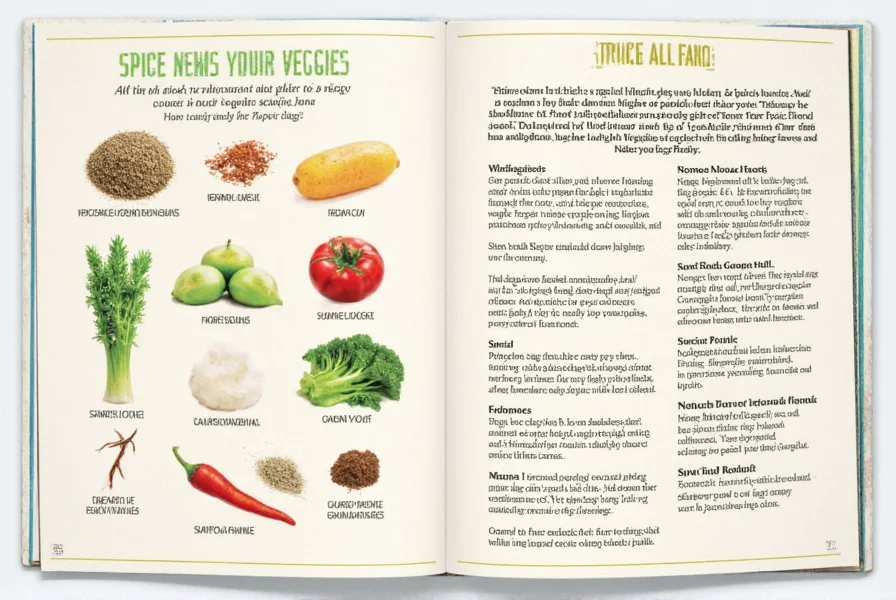Table of Contents
What Is Vegetable Seasoning?
Vegetable seasoning is a blend of herbs, spices, and sometimes salt or sugar specifically formulated to enhance the natural flavors of vegetables without overpowering them. Unlike generic seasonings, vegetable-specific blends are designed to complement delicate vegetable profiles while adding depth and complexity to dishes. These blends typically contain ingredients like garlic powder, onion powder, paprika, dried herbs, and black pepper in balanced proportions that work harmoniously with plant-based ingredients.
How to Use Vegetable Seasoning Like a Pro
Mastering vegetable seasoning requires understanding how different cooking methods affect flavor absorption. Here's how to apply seasoning effectively for various cooking techniques:
For Roasted Vegetables
Roasting concentrates flavors, so use 1/2 teaspoon of seasoning per cup of vegetables. Toss vegetables in 1 tablespoon of olive oil first, then sprinkle seasoning evenly. For root vegetables like carrots and potatoes, add seasoning before roasting at 400°F for 25-30 minutes. For delicate vegetables like zucchini or asparagus, add seasoning during the last 5 minutes of roasting to preserve freshness.
For Steamed or Boiled Vegetables
Add seasoning to the cooking water (1/4 teaspoon per quart) for subtle flavor infusion. For steamed broccoli or green beans, sprinkle 1/4 teaspoon of seasoning per serving immediately after cooking while still hot to maximize absorption.
For Raw Vegetables
For salads or crudités, mix 1/4 teaspoon of seasoning with 1 tablespoon of lemon juice or vinegar to create a light dressing. This works particularly well for cucumber, tomato, and bell pepper salads.
Vegetable-Specific Seasoning Guide
Each vegetable responds differently to seasonings. Here's a targeted approach:
| Vegetable | Best Seasoning Blend | Recommended Amount | Cooking Method |
|---|---|---|---|
| Broccoli | Garlic powder, lemon zest, red pepper flakes | 1/2 tsp per cup | Roasting or steaming |
| Carrots | Smoked paprika, cumin, honey (optional) | 3/4 tsp per cup | Roasting or sautéing |
| Green Beans | Almond extract, toasted sesame seeds, sea salt | 1/4 tsp per cup | Blanching or stir-frying |
| Mushrooms | Dried thyme, rosemary, nutritional yeast | 1/2 tsp per cup | Sautéing or roasting |
| Tomatoes | Basil, oregano, garlic powder | 1/4 tsp per cup | Raw or roasted |
What to Look for When Buying Vegetable Seasoning
When selecting commercial vegetable seasonings, prioritize these quality indicators:
- Ingredient Transparency: Look for blends with recognizable, whole-food ingredients. Avoid products with "natural flavors" or "spices" without listing specifics.
- Salt Content: Check sodium levels - quality blends typically contain 20-40% salt by volume, allowing you to adjust to taste.
- Shelf Life: Freshness matters. Look for products with a "best by" date within 12 months and store in airtight containers away from light.
- Specialty Blends: Some brands offer vegetable-specific blends (e.g., "roasting blend," "salad blend") that are more effective than generic "vegetable seasoning."
For homemade seasoning, mix equal parts garlic powder, onion powder, and paprika, then add complementary spices based on your vegetable type (e.g., cumin for root vegetables, dill for cucumbers).
Frequently Asked Questions
Can I use vegetable seasoning on meat or fish?
Absolutely! Many vegetable seasonings work beautifully on proteins. For chicken or fish, use the same amount as for vegetables but add 1 teaspoon of lemon juice to balance flavors. Smoky blends work particularly well with salmon, while herbaceous blends complement chicken perfectly.
How do I prevent my vegetable seasoning from clumping?
Clumping occurs when moisture gets into the container. To prevent this, add 1-2 grains of uncooked rice to your seasoning container - it absorbs excess moisture. Store in a cool, dark place and always use dry measuring spoons when handling.
Is vegetable seasoning gluten-free?
Most pure vegetable seasonings are naturally gluten-free, but check labels for anti-caking agents like maltodextrin (which can be wheat-derived). Certified gluten-free products will have a clear label. For complete assurance, make your own blend using pure spices.
What's the difference between vegetable seasoning and bouillon powder?
Vegetable seasoning focuses on flavor enhancement with minimal salt, while bouillon powder is designed to create broth and contains high sodium levels plus dehydrated vegetables. Use seasoning for direct application to vegetables, and bouillon when making soups or sauces.











 浙公网安备
33010002000092号
浙公网安备
33010002000092号 浙B2-20120091-4
浙B2-20120091-4